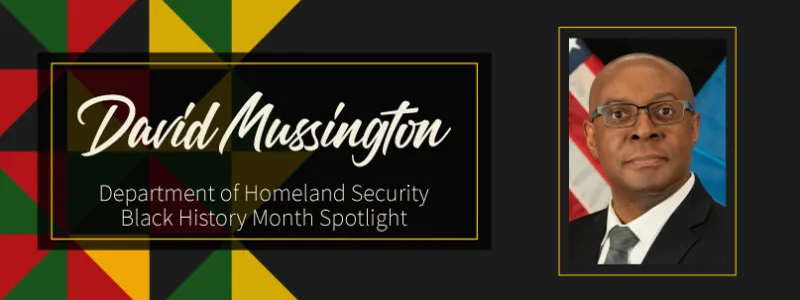
Title: Executive Assistant Director for Infrastructure Security
Department: CISA
Time with DHS: 1 year
What led you to DHS?
I have the honor of being an appointee selected by President Biden for my current post, Executive Assistant Director for Infrastructure Security, Cybersecurity and Infrastructure Security Agency. I am especially pleased to be a part of the Biden Harris Administration, and its commitment to diversity, equity, inclusion, and accessibility. I view this ethical commitment as an integral part of my professional vantage point and bring these principles to bear in the way I execute my responsibilities in my current role.
Where did you grow up?
I am an immigrant. I grew up in the UK and Canada. I came to the US as an adult, post-doctoral student studying at Harvard University's Belfer Center.
Who have been your strongest influences in life?
My major influences in life have been my parents' immigrant experiences, as they both moved from the Caribbean (Antigua and Barbuda), and then to Canada over a period stretching from the 1950s to the 1970s. That determination to seek a better life for their children is still awe inspiring to me, as is their guidance to me and my three siblings to define your own direction, and to refuse to accept the barriers others see (or place) in your way.
What are you most proud of accomplishing from either a personal or professional aspect?
Professionally and personally, I tend to have compound anchoring experiences that shaped my views and values. Naturalizing as a US citizen in 2003 was one such event. Preceding that was earning my PhD and then doing post-doctoral work in the UK and the US. From that, joining the Obama Administration, first at Department of Defense and then working at the White House on the National Security Council staff was a high point. My family and I have a picture with President Obama that is a special treasure. Now, joining the Biden Administration is an honor for which I am also grateful, and I am determined to uphold my commitment to bring my best effort to a President and a team in which I have heartfelt confidence.
From a personal perspective, I am proudest of my family, my wife Ginny and daughter Jaya. They are strong, grounded women who have done more to shape my life than any other singular experience. Their love and support is my anchor.
What impact does your race have on your life?
My race has challenged me in a number of ways, some predictable and some not. I am proud to be a Black American and have not found significant barriers to my professional success – either here or abroad.
As I have gotten older, however, I have realized that my immigrant experience does not map directly to those of either native born African Americans, or to the barriers faced by those less cloistered by advantages of education, financial stability, or geography. Put simply, I think that my experience as a Black American is unique, but not simply and easily separated from the risks that we as a community confront given the perennial return of racial resentments that delimit the potential of our group and other minority communities.
The murder of George Floyd showed me that my attitude of academic distance to racial issues was based on a fundamental misunderstanding of risk to minority communities. Professional success, and individual strategies do not provide immunity from evolving social conditions. They can blunt the impact of racism for an individual, for a time. But the realization that an event, a wrong turn, or a simple low likelihood but nonetheless highly consequential event can strike at almost any moment carries for African Americans a special resonance. Any black person with children feels that realization – and its impact is impossible to avoid.
What significance does Black History Month hold for you? Why is this celebration of history necessary?
For me Black History Month represents recognition of Black excellence. That excellence – like the human journey – has a number of different versions. Dr. King has always been a personal hero of mine. His dedication to principle, his courage, and his willingness to run large risks for the betterment of an entire people offer a singular example to Americans of all origins. He is a figure for the ages.
As we celebrate Black History Month in February, what do you want your DHS colleagues to know?
I want my colleagues to be aware that the Black experience in America is varied, but with a common core – an ability to achieve against historical adversity. I think that my own background shows that we are capable of excellence, and that any stereotypes of African Americans as less intelligent, less dedicated, less courageous, and less honest and worthy are simply false; so false that we as a nation need to confront such views, such hate, and eliminate it from public life and society as soon as is practical. Our ability to achieve continued greatness as a nation – one Nation under God – is hostage to our success in this endeavor.
Is there anything else that you'd like to share?
We should celebrate Black History Month as a narrative of success and enduring faith.
